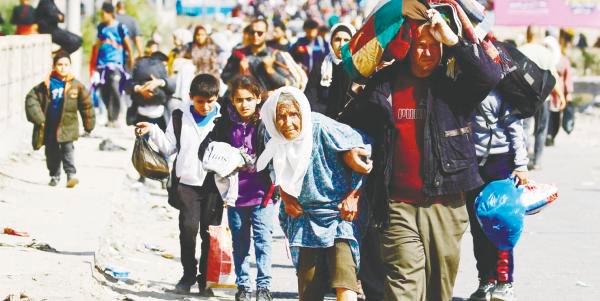IN a world marred by geopolitical manoeuvres that play out like a cruel chess match, the latest developments in Gaza seem less strategic and more like a harsh game where the dice are loaded.
Imagine this scene: Egypt and Israel, historically uneasy neighbours, now forging a “mutual understanding”. What is on the line? A mere 14km of land that is not just a patch of dirt but a demilitarised zone and the Rafah crossing – a vital artery for the embattled population of Gaza, representing hope and survival.
Under this grim pact, Egypt entertains the notion of an Israeli military foothold along its border with Gaza, all for the sake of reopening Rafah, which is far more than a mere crossing point.
It is the fragile lifeline preventing Gaza from an utter collapse. But let us be clear: This deal is a devil’s bargain. The people of Gaza find themselves pawns, their futures suspended by the decisions of powers that play a high-stakes game far removed from the bleeding streets of Gaza.
Israel’s offerings are stark and oppressive: Maintain a military presence – an occupation by any other name – or erect a high-tech subterranean barrier, turning Gaza into a digitally surveilled fortress, effectively sealing it off.
And Egypt? It seems all too ready to trade off slices of its sovereignty just to get the gates of Rafah swinging again, feigning a restoration of Palestinian governance. This, however, is not a stride toward peace or security. It is about domination and maintaining a suffocating status quo that has throttled Gaza for decades.
Hamas, ruling Gaza by default, has every reason to rebuff any ceasefire that would embed Israeli forces into the Philadelphi Corridor. For the countless Palestinians enduring a relentless siege, this is not a chess game, it is a desperate fight for existence.
Compelled by Israel and shadowed by American interests, Egypt appears poised to comply. But what does this mean for the dream of two states living side by side in peace?
Each concession by Egypt, every foothold Israel maintains, drags that dream further into the realm of fantasy. As these political games unfold in Cairo and Tel Aviv, the people of Gaza endure unbearable suffering. The closure of the Rafah crossing has tightened like a noose around Gaza, trapping not only people but also the essential supplies that can alleviate their suffering.
The death toll rises, not just from conflict, but from deprivation of medical necessities and a dwindling of hope. Behind closed doors, as 25,000 Palestinians languish, injured and sick, waiting for a chance to seek life-saving care in Egypt, leaders negotiate terms that spell more control, not conciliation.
What is truly at stake here goes beyond mere territory or security concerns. It is about a people systematically robbed of their dignity, autonomy and now, any prospect of a self-determined future.
The conditional reopening of Rafah is not a breakthrough, it is a regression, a retreat from any meaningful path towards peace. It represents yet another blow to the prospect of a two-state solution, increasingly resembling a distant, fading mirage.
As global observers and leaders exchange handshakes and pleasantries, let us not overlook the true cost of these “understandings”.
Once again, Palestinians are coerced into bearing the brunt, living with the aftermath of decisions made in rooms they have no access to.
As this grim reality persists, peace remains a bitter jest, and justice a fleeting illusion.
The writer is an entrepreneur with a passion for politics and international affairs. As a world traveller, his global experiences enhance his photography and literary work, providing unique insights and perspectives. Comments: letters@thesundaily.com









